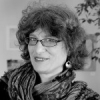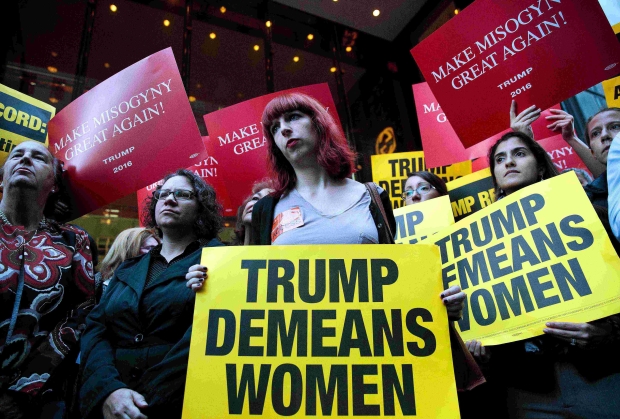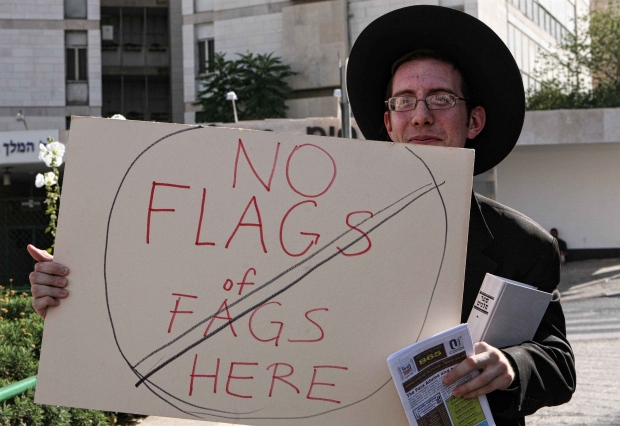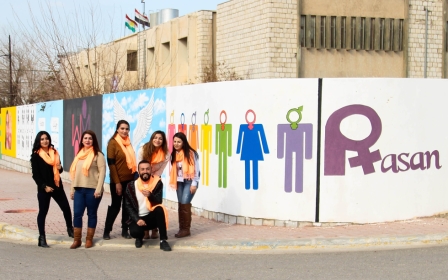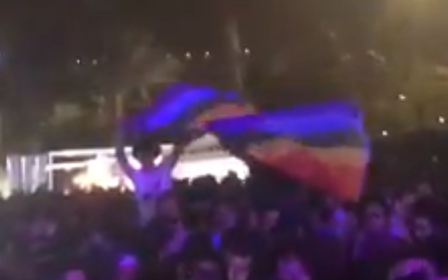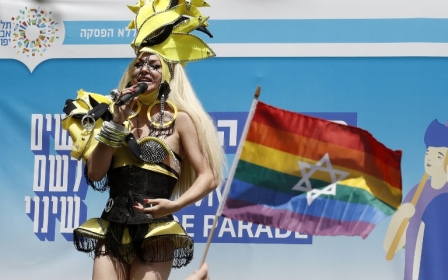Don't try to stop us from denouncing Israel's pinkwashing
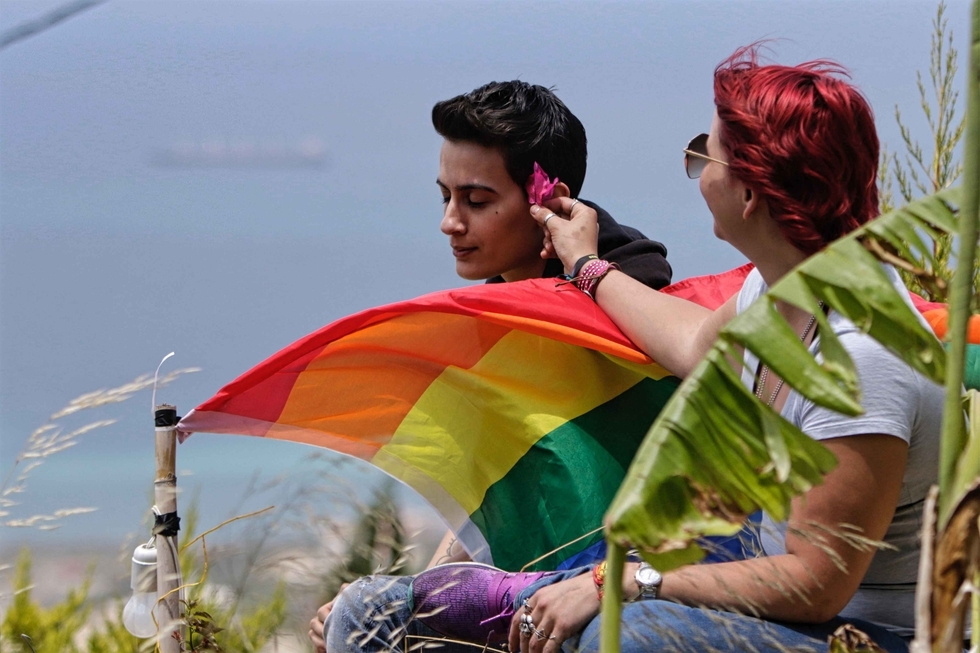
In March, the US Campaign for Palestinian Rights hosted a webinar, "Palestine as a Queer Issue," which I had the honour of moderating. It explored "pinkwashing," a propaganda tactic used by Israel to falsely portray the country as progressive while presenting Palestinian, Arab and Muslim societies as backwards and intolerant.
Lately, I have given deep thought to the accusation lobbed at me and other activists that, by focusing on pinkwashing as an Israeli ruse, we are turning a blind eye to the pervasive homophobia and sexism in Palestinian society.
The accusation smacks of the derailing tactics at play when someone denouncing police murders of African-Americans is asked to discuss black-on-black crime - as if the existence of intra-racial crime somehow minimises the institutionalised racism of those meant to "serve and protect".
Understanding cultural restrictions
I am not so naive as to romanticise my cultural background. As a Palestinian raised in Lebanon, I am fully aware of the oppressive gender dynamics in Palestinian-Lebanese culture, even as I realise that Lebanese culture is among the more liberal Arab cultures.
I know many young Palestinian women who struggle with the social limits imposed upon them by their parents and society. Certainly, no Arab is oblivious to the many restrictions on women - of which many are legal, and others are socially enforced - and to the stifling taboos around gender non-conforming individuals in the more repressive countries, from Saudi Arabia to Egypt.
In the US, the so-called "leader of the free world" brags about sexual assault as an ever-growing number of women from all walks of life join the #MeToo movement.
In the UK, according to The Guardian, 30 percent of women have reported domestic abuse. But this is only the tip of the iceberg; according to the Crime Survey for England and Wales, around 80 percent of victims do not report it to police.
Partner abuse is also rampant in Israel, where most youth are trained in violence and dehumanisation as part of their military service. This systematic training and practice of instinctive violence is not something young Israelis, as they grow into adulthood, can leave at the door, like a pair of muddy boots as they re-enter civilian life.
If anyone were blind to these restrictions, then the rest of the world has been eager to point them out. We can respond by observing that misogyny is a universal evil
According to the United Nations, 40 to 70 percent of murdered women in Israel are killed by their partners. Rape and sexual abuse remain the least reported crimes in the world, which is why the range of numbers is frustratingly broad.
Of course, homophobia and transphobia are also pervasive in the West, where, for example, US President Donald Trump vows to ban trans people from serving in the military, while Vice President Mike Pence remains one of the most hatefully homophobic politicians in office.
Last week, a US Republican candidate for the Maine House of Representatives smeared Emma Gonzales, a young activist for stricter gun ownership rules, as a "skinhead lesbian". So much for Western "liberalism," which views Arab societies as uniquely repressive.
Apartheid, patriarchy and capitalism
But here's the deal: nobody goes around touting the wonders of Arab society. In reference to both Palestine and Lebanon, I know of many organisations that expose and challenge misogyny and homophobia. Even as we question Western imperial feminism and denounce pinkwashing, we do not present our own cultures as havens of equality.
The problems are addressed from various intersecting angles, with a deep understanding that justice is indivisible and that there can be no national liberation without gender liberation.
As Ghaith Hilal, a member of the Palestinian al-Qaws rights organisation, noted: "You cannot have queer liberation while apartheid, patriarchy, capitalism and other oppressions exist."
You cannot have queer liberation while apartheid, patriarchy, capitalism and other oppressions exist
- Ghaith Hilal, Palestinian al-Qaws organisation
Palestinians, of course, understand that Zionism is racism. The Lebanese feminist organisations with which I am familiar also denounce the endemic racism in Lebanon that dehumanises migrant workers.
Another accusation frequently lobbed at anti-pinkwashing activists is that we are "single issue" people. Wrong: we can, and do, denounce pinkwashing, as well as our own society's sexism, and many other oppressive systems.
I can confidently say that every activist I know who denounces pinkwashing is also active in a number of social justice causes in their own community outside of Israel, as well as in alliance with other oppressed communities.
In Lebanon, gender justice activists have been organising around the abusive treatment of migrant workers and refugees, the minimum age for marriage, domestic violence, mothers being able to pass down their nationality to their children when the father is not Lebanese, and much more.
In Palestine, the connections being made with communities of colour in the US - from law enforcement violence, to incarceration, to immigrant and refugee rights, to indigenous sovereignty - speak of a transnational understanding of structural racism and state-sanctioned violence that goes beyond the "single issue" of Israeli propaganda.
Intersection of oppressive systems
Israel, on the other hand, projects itself as practically a role model on gender equity; being "gay-friendly," for Israel, is the cherry on top of all that is good about the "Jewish democracy".
But just as Israel needs to qualify "democracy" - thus rendering the term meaningless - so it should, but does not, qualify "gay-friendly".
I am writing this as marches are taking place in Palestine. Israeli snipers with orders to shoot anyone who approaches the illegal "border" do not stop to inquire about their target's gender identity before pulling the trigger.
I am fully aware that Israel denies all Palestinian refugees the right of return, regardless of sexuality. I am also painfully aware that some of the soldiers killing my relatives are gay, lesbian and trans, and that they do not view Palestinian queers as "family" but as terrorists, rioters and the enemy.
You cannot silence us by suggesting we only want to denounce Israel's propaganda. Every activist who denounces pinkwashing does so out of a full understanding of the complex of oppressive systems that cross at that point, from Orientalism to white supremacy to Zionist settler-colonialism, and of course, global homophobia and misogyny.
Pinkwashing may be a ruse Israel uses to distract from its egregious human rights violations, but our denunciation of it in no way suggests we are "distracted" from the many other oppressive systems we function within and organise to change.
- Nada Elia is a diaspora Palestinian writer and political commentator, currently working on her second book, Who You Callin' 'Demographic Threat?' Notes from the Global Intifada. A professor of gender and global studies (retired), she is a member of the steering collective of the US Campaign for the Academic and Cultural Boycott of Israel (USACBI).
The views expressed in this article belong to the author and do not necessarily reflect the editorial policy of Middle East Eye.
Photo: Members of Lebanon's LGBTQ community attend a picnic the coastal city of Batroun, north of Beirut, on 21 May 2017, as part of the Beirut Pride week aimed at raising awareness about the rights of the community (AFP).
This article is available in French on Middle East Eye French edition.
New MEE newsletter: Jerusalem Dispatch
Sign up to get the latest insights and analysis on Israel-Palestine, alongside Turkey Unpacked and other MEE newsletters
Middle East Eye delivers independent and unrivalled coverage and analysis of the Middle East, North Africa and beyond. To learn more about republishing this content and the associated fees, please fill out this form. More about MEE can be found here.


